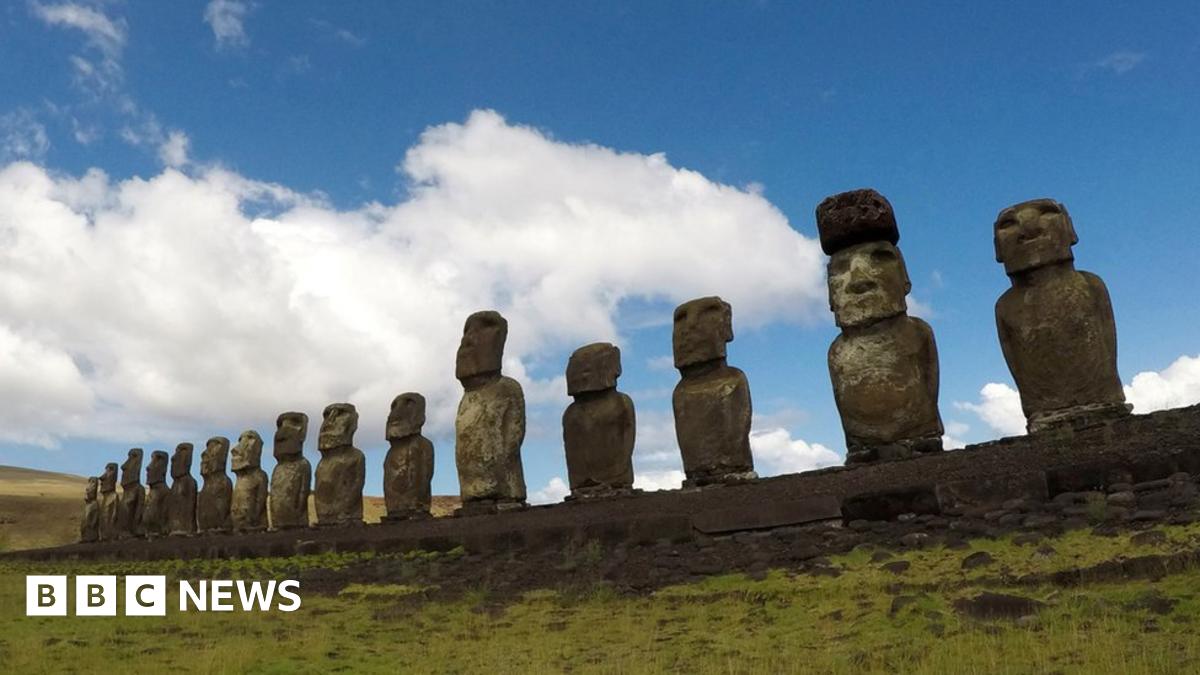- Joined
- Mar 27, 2016
- Messages
- 2,322
Very interesting for all of us Thor Heyerdahl fans....
First lines of the article on BBC News...
New evidence has been found for epic prehistoric voyages between the Americas and eastern Polynesia.
DNA analysis suggests there was mixing between Native Americans and Polynesians around AD 1200.
The extent of potential contacts between the regions has been a hotly contested area for decades.
In 1947, Norwegian explorer Thor Heyerdahl made a journey by raft from South America to Polynesia to demonstrate the voyage was possible.
Until now, proponents of Native American and Polynesian interaction reasoned that some common cultural elements, such as a similar word used for a common crop, hinted that the two populations had mingled before Europeans settled in South America.
Opponents pointed to studies with differing conclusions and the fact that the two groups were separated by thousands of kilometres of open ocean.
Alexander Ioannidis from Stanford University in California and his international colleagues analysed genetic data from more than 800 living indigenous inhabitants of coastal South America and French Polynesia.
They were looking for snippets of DNA that are characteristic of each population and for segments that are "identical by descent" - meaning they are inherited from the same ancestor many generations ago.
"We found identical-by-descent segments of Native American ancestry across several Polynesian islands," said Mr Ioannidis.
"It was conclusive evidence that there was a single shared contact event."
And here's the BBC in full:

First lines of the article on BBC News...
New evidence has been found for epic prehistoric voyages between the Americas and eastern Polynesia.
DNA analysis suggests there was mixing between Native Americans and Polynesians around AD 1200.
The extent of potential contacts between the regions has been a hotly contested area for decades.
In 1947, Norwegian explorer Thor Heyerdahl made a journey by raft from South America to Polynesia to demonstrate the voyage was possible.
Until now, proponents of Native American and Polynesian interaction reasoned that some common cultural elements, such as a similar word used for a common crop, hinted that the two populations had mingled before Europeans settled in South America.
Opponents pointed to studies with differing conclusions and the fact that the two groups were separated by thousands of kilometres of open ocean.
Alexander Ioannidis from Stanford University in California and his international colleagues analysed genetic data from more than 800 living indigenous inhabitants of coastal South America and French Polynesia.
They were looking for snippets of DNA that are characteristic of each population and for segments that are "identical by descent" - meaning they are inherited from the same ancestor many generations ago.
"We found identical-by-descent segments of Native American ancestry across several Polynesian islands," said Mr Ioannidis.
"It was conclusive evidence that there was a single shared contact event."
And here's the BBC in full:

Evidence found of epic prehistoric Pacific voyages
New evidence has been found for epic prehistoric voyages between the Americas and eastern Polynesia.
www.bbc.co.uk


